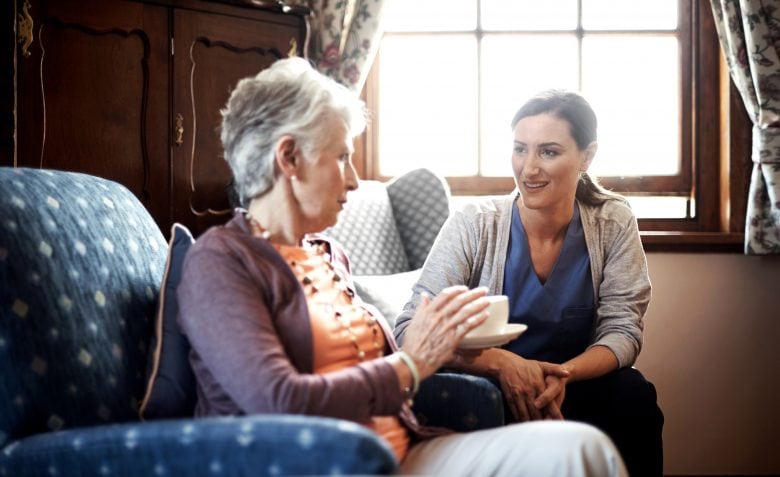There is no doubt that the Royal Commission into Aged Care Quality and Safety will raise a broad range of issues, many of which will be uncomfortable, some of which will be disturbing and confronting.
One of the issues it has already raised in my mind results from my experience for over 20 years with families grappling with the decision to commence the process to access aged care support services at home or to place a loved one in residential aged care. A recurring theme with families is what to look for in a service provider. In aged care, what does good look like?
Aged care is a multi-billion dollar business and a highly competitive marketplace. Some providers have shareholders as their first responsibility. Since the introduction of consumer directed care, providers now need to spend large amounts of money advertising to attract the customers in the marketplace. Billboard, bus and radio campaigns abound. With home care package wait lists for some people over 1 year long , my cynical side has commented that the first winners of the reform are the advertising agencies.
So, where in all of this is the customer, and how should one decipher the marketing campaigns to identify whether this is a provider you’ll choose to care for your loved one? And, when receiving a care service, how do you know if the quality of the service is ‘the norm’, and what you need to accept, even if it doesn’t sit right with you? Maybe you feel your loved one’s dignity isn’t being respected. Or their individuality respected? Or that the support worker isn’t engaging with your loved one in the way they would like? Is this as good as it gets, or all that government funding will pay for?
I recall a conversation I had many years ago with a lady in a residential care facility in Adelaide. I shall call her Susan (not her real name). Susan spoke to me about the wonderful care she received, and how grateful she was that she had selected this facility for her long term care. She had spent some time with her daughter visiting residential aged care homes before she had made her choice. I asked her what had influenced her decision.
Susan told me that a choice of wine or fancy drapes had not been part of her checklist. She wasn’t looking for a new building. She didn’t need a room with a sweeping view. She said she knew as soon as she walked into this facility it was the place for her. She said the warmth of the staff and the way they interacted with her felt like a warm blanket had been placed around her shoulders. She said it felt like home.
There is no doubt staff numbers, quality food and clinical care are key factors in good aged care services. But it must be homely, and it should be person focussed, not task oriented. It should have the same key qualities that make us feel comforted and secure in our own homes. Things such as privacy, dignity, respect for individuality, meaningful relationships, a feeling of emotional safety and the right to choose and the dignity to take risk should all be elements of the daily experience
Does a different person each shift, each day manage your loved one’s private ablutions? How many people providing personal care does that add up to in a week? How does the provider ensure meaningful relationships are established with a few care staff rather than a multitude of meaningless relationships between the carers and the one cared for?
These are elements of what is referred to as person-centred care. This term has become over used and risks being meaningless. However, in seeking to answer the question “what does good look like”, the key qualities of person-centred care create a good framework for considering the answer.
Making the decision to access aged care support, either at home or in a residential facility, is usually a difficult one for families, often vexed, and often made during a health crisis in either the elder requiring the care or the carer. The reluctance is due to a perceived or real sense of losing independence and identity.
It isn’t a decision we look forward to, but one that will be made easier if those involved have talked about what will be important to them. You will all be better equipped and know what questions you want to ask, because together you would have formed a view of what good looks like for you or your loved one.
The Royal Commission will hear from many individuals and families. Many will speak with regret that they hadn’t understood what good looked like, and were poorly equipped to deal with what they now know to be an unacceptable level of care. Hopefully, like Susan, you and your loved one will know what good looks and feels like, and know how to look for and find it if and when the time comes to do so.

 Listen to this page
Listen to this page

